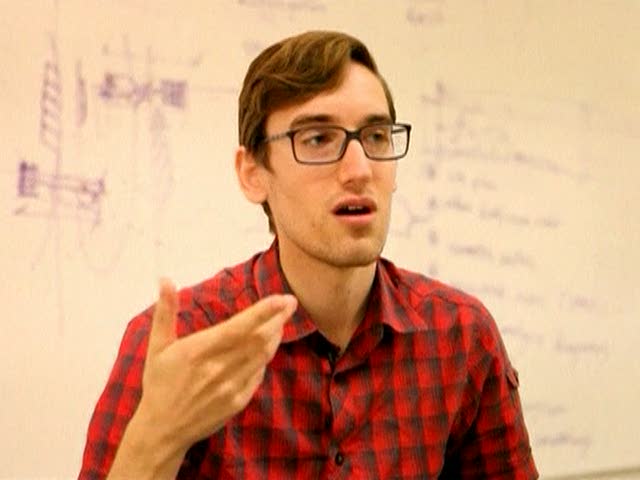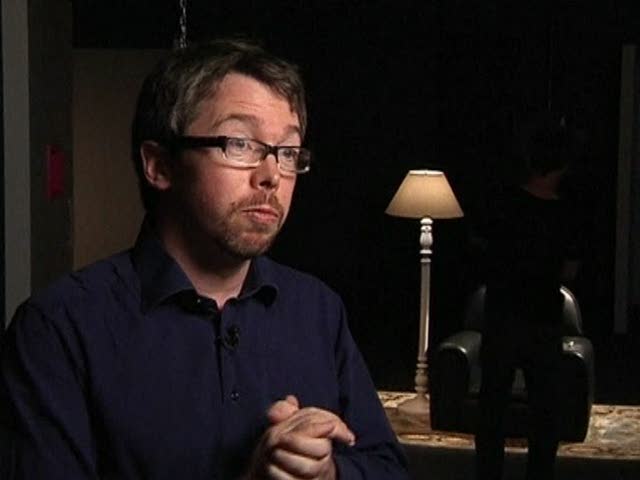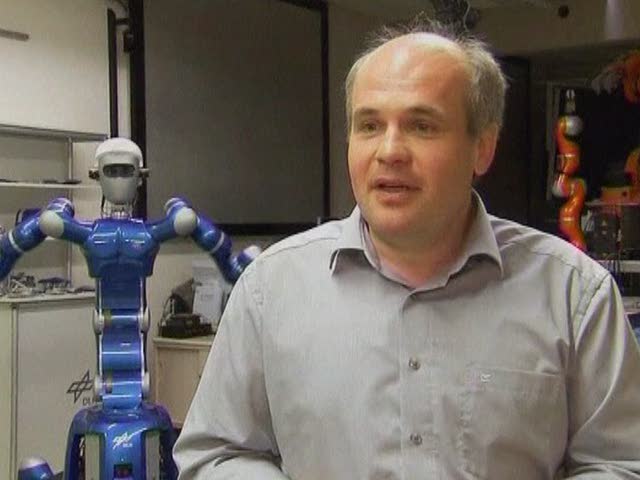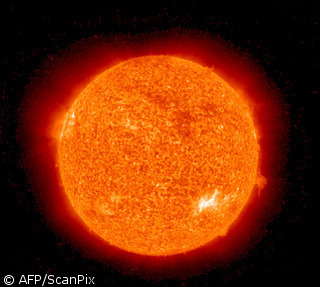CERN's New Particle Accelerator Promises Window on Big Bang
Published:
25 July 2004 y., Sunday
Scientists probing something as big as the origins of the universe sometimes need equipment to match. At the European nuclear research center CERN in Geneva, they're building the most powerful particle accelerator ever. The Large Hadron Collider, as it's called, is expected be able to recreate the conditions that existed at the time of the Big Bang, when the universe was born. Scientists say they hope the new tool will help them unravel the mysteries of matter and energy, and confirm or demolish existing theories.
Contrary to what its name implies, the Big Bang was not necessarily an explosion. Scientists consider the Big Bang to be more of a marker to note that the universe had a beginning. It is the moment in which the universe, space and time were created. CERN Physicist Richard Jacobsson says scientists do not know why or how the Big Bang occurred. But big particle accelerators such as the Large Hadron Collider help them to understand the process.
When the Large Hadron Collider (LHC) is completed in 2007, the superconducting magnets in the machine will operate at 271 degrees, just above absolute zero. However, Mr. Jacobsson says that the temperature created in the proton-proton collisions will be one billion times hotter than at the center of the sun.
Some 6,500 scientists from more than 80 countries currently collaborate on hundreds of ongoing experiments at CERN. The world's biggest particle physics laboratory is celebrating its 50th anniversary this year.
Šaltinis:
voanews.com
Copying, publishing, announcing any information from the News.lt portal without written permission of News.lt editorial office is prohibited.
The most popular articles

The European Commission announced today the award of three of the six contracts for the procurement of Galileo’s initial operational capability.
more »
 Researchers at MIT have re-created Italian ballet star Roberto Bolle in digital form to study the capabilities of motion technology. The scientists say that in the future, motion sensors and scanners will be able to find potential health problems before they become apparent to the naked eye.
more »
Researchers at MIT have re-created Italian ballet star Roberto Bolle in digital form to study the capabilities of motion technology. The scientists say that in the future, motion sensors and scanners will be able to find potential health problems before they become apparent to the naked eye.
more »
 A Japanese engineer researching how animals move is building a robot that can run like a human being. Ryuma Niyama is attempting to crack the code of human propulsion, an achievement he says will one day lead to more efficient prosthetics.
more »
A Japanese engineer researching how animals move is building a robot that can run like a human being. Ryuma Niyama is attempting to crack the code of human propulsion, an achievement he says will one day lead to more efficient prosthetics.
more »
 A three-dimensional computer generated film shows, for the first time, what happens in the brain as it loses consciousness.
more »
A three-dimensional computer generated film shows, for the first time, what happens in the brain as it loses consciousness.
more »
 The Swiss Solar Impulse takes off from Brussels for a flight to the International Paris Air Show.
more »
The Swiss Solar Impulse takes off from Brussels for a flight to the International Paris Air Show.
more »
 An exhibition which doubles as a huge, interactive science experiment has openend in New York.
more »
An exhibition which doubles as a huge, interactive science experiment has openend in New York.
more »
 German researchers hope that their coffee-making, ball catching robot named Justin, will become man's new best friend. Justin is being developed for use in space or in the home.
more »
German researchers hope that their coffee-making, ball catching robot named Justin, will become man's new best friend. Justin is being developed for use in space or in the home.
more »
 Japanese scientists are working on a project to supply 13,000 TW of solar energy with the help of robots stationed on the moon to receiving stations on the Earth’s surface.
more »
Japanese scientists are working on a project to supply 13,000 TW of solar energy with the help of robots stationed on the moon to receiving stations on the Earth’s surface.
more »
 The first question anyone asks when they meet me is: "What does a corporate anthropologist do?"...
more »
The first question anyone asks when they meet me is: "What does a corporate anthropologist do?"...
more »
 Scientists in New York have discovered that fly ash, a by-product of coal, can be used as an ingredient in a new, lightweight material that could one day replace heavy metals to make car parts.
more »
Scientists in New York have discovered that fly ash, a by-product of coal, can be used as an ingredient in a new, lightweight material that could one day replace heavy metals to make car parts.
more »
 Chicago's Adler Planetarium is about to open what it says is an immersive space experience like no other in the world. Called Deep Space Adventure, it will take passengers aboard a futuristic starship for a virtual tour of the Universe.
more »
Chicago's Adler Planetarium is about to open what it says is an immersive space experience like no other in the world. Called Deep Space Adventure, it will take passengers aboard a futuristic starship for a virtual tour of the Universe.
more »